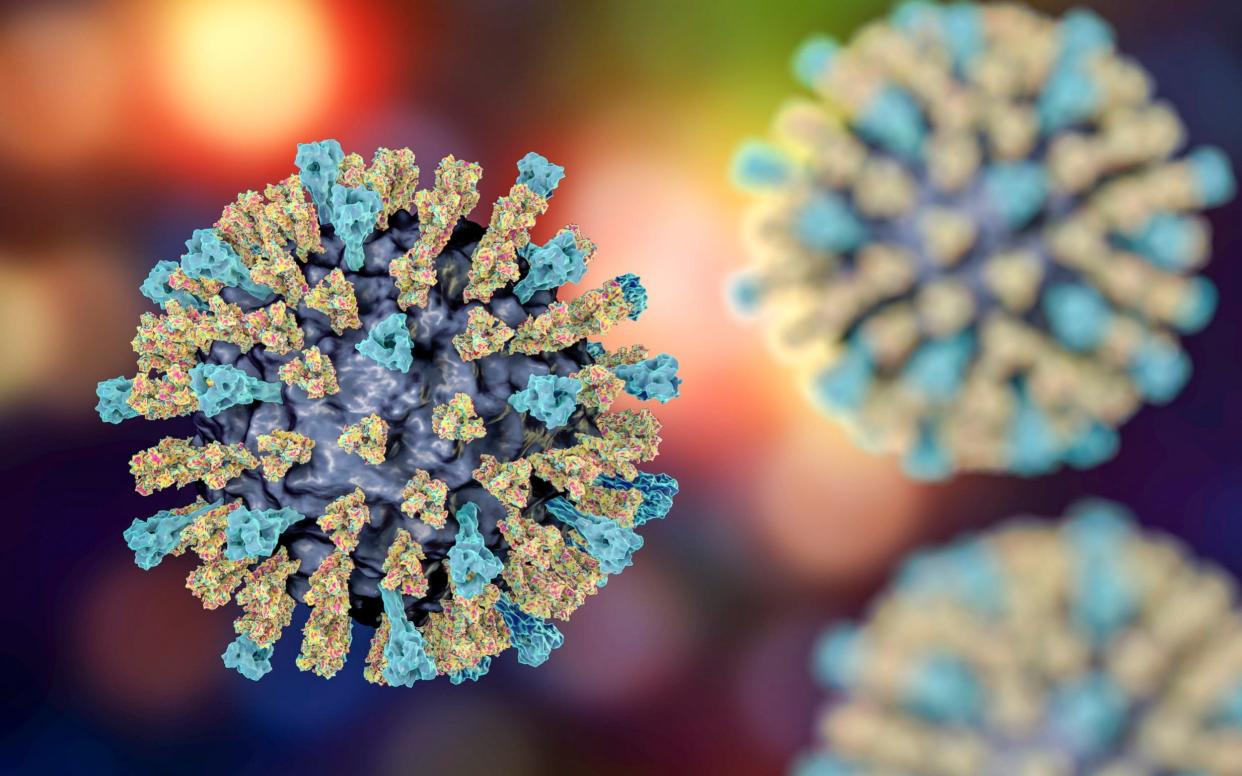National measles warning after five-fold rise in cases in England

Health officials have declared a “national measles incident” after a five-fold rise in cases over the past year.
Experts said outbreaks were largely affecting young adults who missed out on the MMR vaccine when they were younger.
Uptake fell heavily following the publication of research in 1998, which was later discredited, linking the jab to autism.
And they said GPs should also pay particular attention to those travelling from countries such as Romania and Italy where uptake has always been low.
Latest figures from Public Health England (PHE) show 643 cases of measles in England in the first five and a half months of this year – compared with 274 cases in 2017.

Cases were reported in most areas with London, the South East and West Midlands reporting the most cases, officials said.
It follows the spread of the disease across Europe.
Figures from the World Health Organisation show 21,315 cases of measles last year, compared with 5,273 cases in 2016. The worst were in Romania, with 5,562 cases, Italy with 5,006 and Ukraine with 4,767.
These states have some of the lowest measles vaccination rates, at 86 per cent, 85 per cent and 42 per cent respectively. More than 80 per cent of cases in Romania and Italy involved people who had not been vaccinated. Greece and Germany both had more than 900 cases and France had 520.
In the early 2000s there was a fall in MMR vaccination coverage in children and, as a consequence, we are now seeing measles cases in young adults
Dr Mary Ramsay, Public Health England
Medics today warned that measles remains a threat to the public, despite recent claims that the disease had been eliminated.
An editorial published in the British Journal of General Practice highlights 48 deaths from the disease reported in the European Union since 2016.
In September last year, the World Health Organisation (WHO) declared that the elimination of measles had been achieved in the UK.
Elimination of measles can be verified once a country has sustained "interruption of endemic transmission" for at least 36 months, according to the WHO.
The new article, penned by Dr Maliha Moten, who is part of PHE's West Midlands Health Protection Team, warns of several outbreaks across the country in the last year “mainly linked to importations from Europe”.
PHE officials confirmed that a national measles incident has now been declared, in order to ensure that attempts to tackle outbreaks are coordinated.
In June, PHE urged young adults and teenagers planning to go to Europe during the summer to check they are vaccinated against measles.
Uptake of the MMR vaccine fell heavily following the publication of a study in The Lancet by Andrew Wakefield in 1998 which suggested a possible link between the inoculation and autism.
Experts have widely discredited his study and he was struck off the medical register in 2010.
PHE said that while vaccine uptake levels in the UK in young children are currently very high, coverage levels dipped to a low of 80 per cent in 2003.
It said this means there are significant numbers of unprotected teenagers and young adults who could contract measles.
Measles is a highly infectious viral illness and can be deadly in some cases.
Dr Mary Ramsay, head of immunisation at Public Health England, said: "In the early 2000s there was a fall in MMR vaccination coverage in children and as a consequence, we are now seeing measles cases in young adults.
"Measles can be more serious in adults with a higher likelihood of hospitalisation and complications arising.
"Measles is circulating in England and the rest of Europe. We often think about what travel-related vaccines we might need before going on holiday, but it's also important to check that we are up to date with routine vaccinations like MMR.
"If you are unsure if you have had two doses of MMR call your GP practice to check and catch up if needed."
Protect yourself and your family by learning more about Global Health Security

 Yahoo News
Yahoo News 
